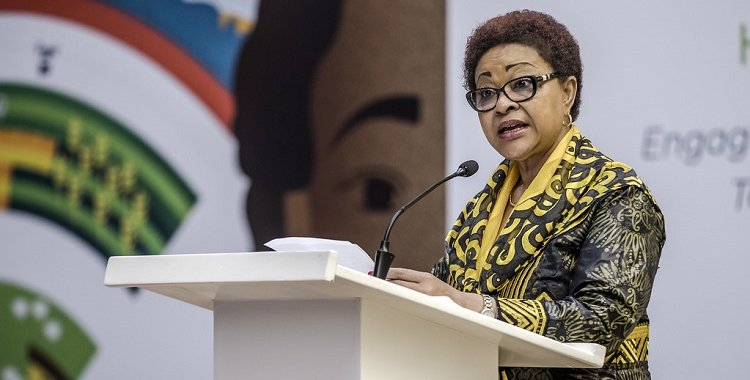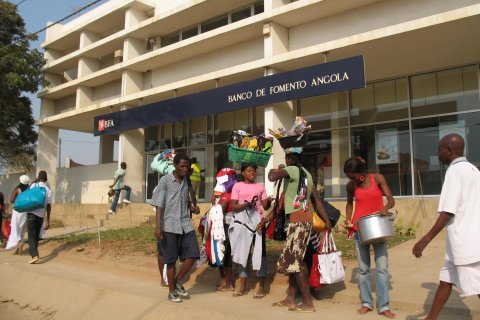"On behalf of the executive and on my own, I have the honor to congratulate Mrs. Josefa Sacko, for her election to the position of African Commissioner for Agriculture, Rural Development, Blue Economy and Sustainable Environment," said the President of the Republic, João Lourenço, in a statement.
Diplomatic source told Lusa agency, Josefa Leonel Correia Sacko largely exceeded two-thirds of the votes required for re-election of the 55 member states of the African Union, whose Heads of State and Government met this Saturday and Sunday in summit.
João Lourenço also congratulated Wilson de Almeida Adão and Pascoal António Joaquim, elected respectively as members of the African Committee of Experts on the Rights and Welfare of the Child and the African Union Consultative Council on Corruption.
"We are pleased to know that national citizens have deserved a positive evaluation for their competence and high qualification to hold positions of great relevance in prestigious international organizations," considered the Head of State.
In the communiqué, João Lourenço expressed the wish that the three elected officials "perform their positions with a brio and high sense of professionalism" in order to "dignify the qualities of the Angolan staff".
Agricultural engineer and diplomat Josefa Leonel Correia Sacko has been commissioner for Agriculture and Rural Economy for the past four years, to which the Blue Economy and Environment will be added in the next term of office, in accordance with the restructuring of the AU Commission, which has been increased from eight to six commissioners.
Prior to her election to the African Union, she served as special advisor to the Ministry of the Environment, where she was responsible for climate change, as well as the Ministry of Agriculture, where she oversaw food security, hunger eradication and poverty reduction.
She was also Secretary General of the Inter-African Coffee Organization (IACO) for 13 years in Côte d'Ivoire, where she supervised the coffee economy of 25 African producing countries.
She has also been a consultant or official to several regional and global institutions including the World Trade Organization (WTO), African Union (AU), International Coffee Organization (ICO), African Development Bank (AfDB) or African Export and Import Bank (AFREXIMBANK).
The new commission, the first to be elected after the AU reform process started in 2016 under the supervision of Rwandan President Paul Kagamé, was chosen through a new merit-based system, but also respecting gender and regional representation criteria.
For the commission's presidency, former Chadian prime minister and foreign minister Moussa Faki Mahamat was re-elected. He was re-elected unopposed and the vice-presidency was held by Rwandan Central Bank economist and vice-governor Monique Nsanzabaganwa, who was elected with 42 votes.
Albert Muchanga was also reelected as commissioner for economic development, trade, industry, and mining, as was Egyptian Amani Abou-Zeid, who renewed her mandate as commissioner for infrastructure and energy.
The summit also decided that Senegal will assume the rotating presidency of the African Union for the period 2022-2023, after a unanimous choice of the 55 member states of the organization.
Senegal's candidature was presented en bloc by the countries of the Economic Community of West African States (ECOWAS), of which the Lusophone countries Cape Verde and Guinea Bissau are part, following the withdrawal of the candidatures of Ghana and Togo.
The choice for the rotating presidency of the African Union is made one year in advance, the countries must express their willingness to take office and the choice, as a rule, respects criteria of geographical representation.
Senegal will succeed the Democratic Republic of Congo (DRCongo) as President Felix Tshisekedi officially took over the leadership of the organization this Saturday.
The African Union was created on 11 July 2000 to replace the Organization of African Unity (OAU), founded on 25 May 1963, and currently brings together 55 member states, including the Lusophone countries Angola, Cape Verde, Guinea-Bissau, Equatorial Guinea, Mozambique and São Tomé and Príncipe.







